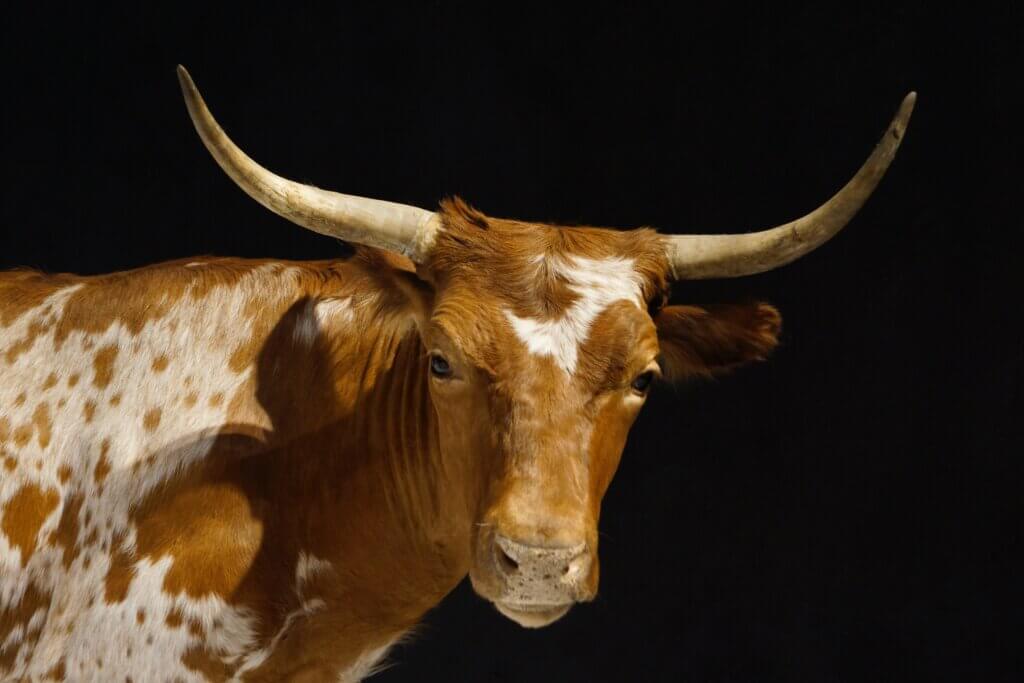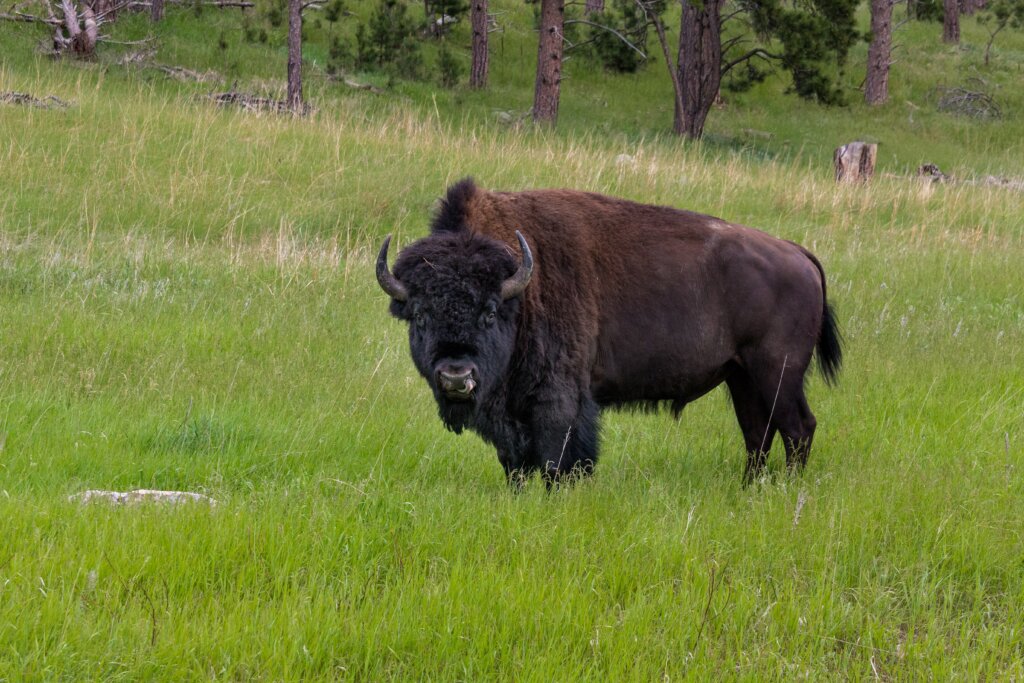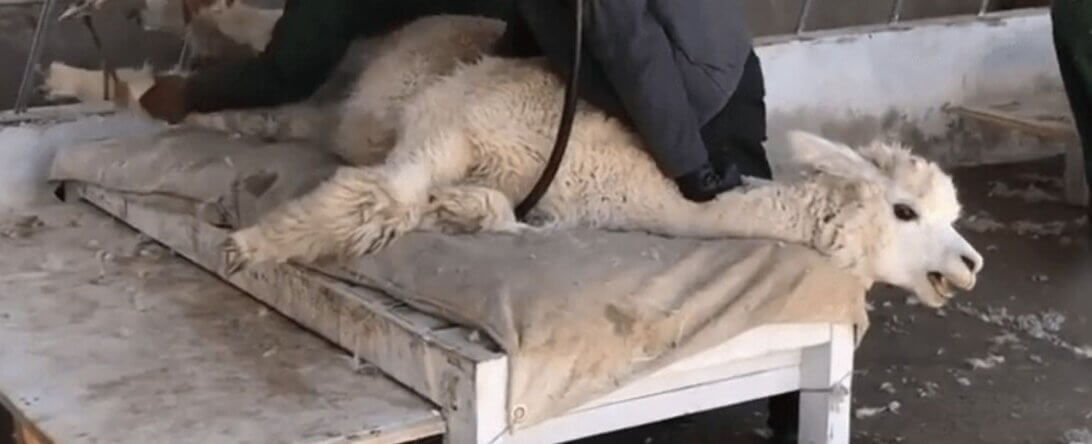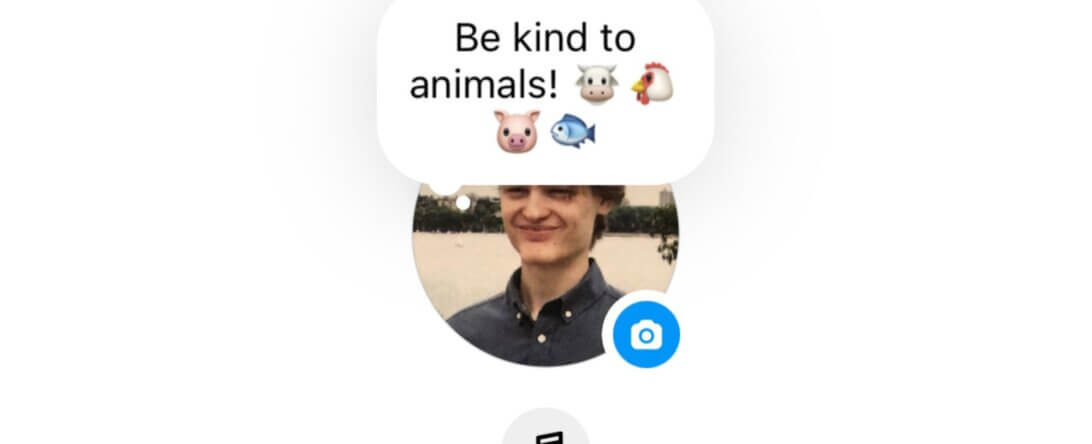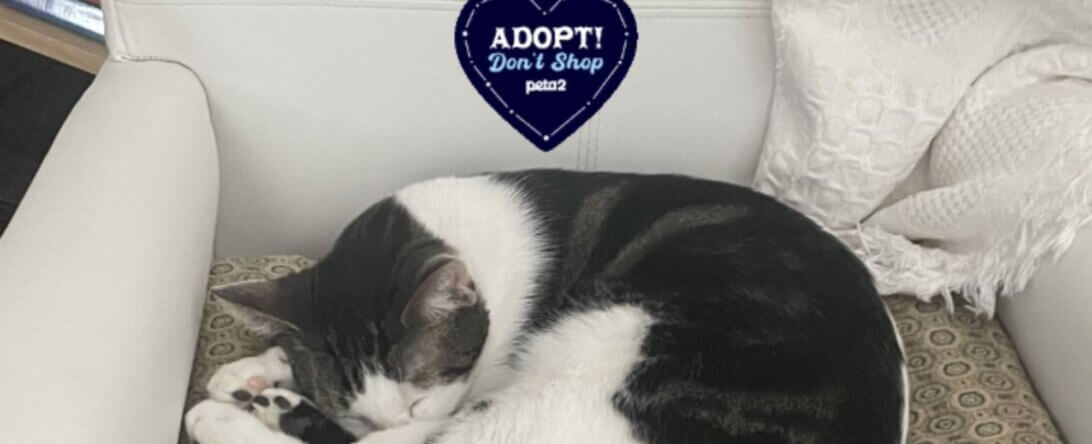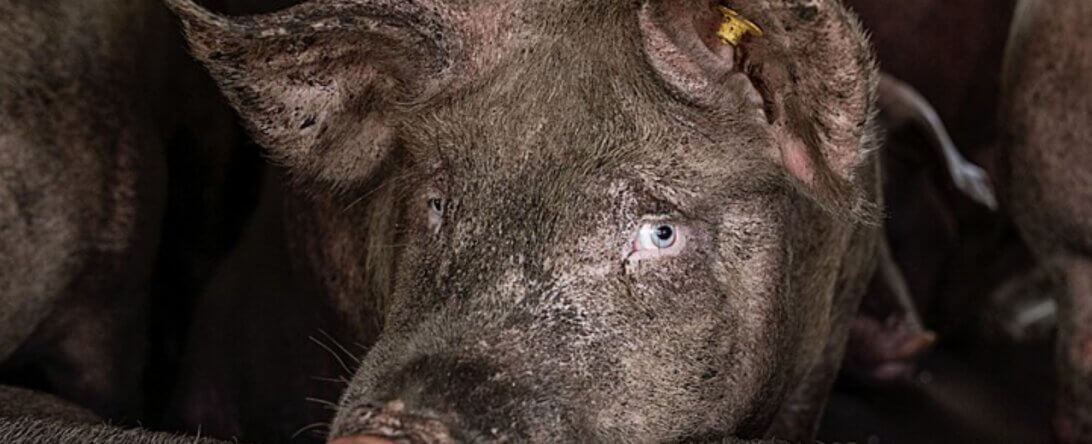Mission: Schools Using Live-Animal Mascots for Sports Games Already Took the L
With 4 seconds left on the clock, the crowd is holding its breath. The quarterback’s pass sails through the night sky and starts dropping toward the illuminated field. A sea of hands stretches toward the ball, someone grabs it, and players pile into the end zone as time expires. For a moment, all is silent. Then your school’s star player emerges, ball in hand!
The crowd explodes. You cover your ears as the band starts blaring a victory song and screaming fans pour onto the field. It seems like everyone in the deafening arena is ecstatic—but look closer and you’ll see someone in distress. Amid the pandemonium, your school’s live-animal mascot is overstimulated, confused, and panicked.
There’s absolutely no reason to subject real animals to such stressful conditions. Yet schools continue to use bison, sheep, longhorns, and other animals in chaotic environments, which puts them and humans in danger. Even dogs who are typically comfortable around humans can become anxious when forced to perform at energetic events.
Here are some of the schools exploiting live animals as mascots.
The University of Georgia: Uga
The University of Georgia (UGA) still uses Uga the English bulldog as its mascot. Uga, a breathing-impaired breed (BIB), is forced to endure chaotic public events in loud, packed arenas.
In January 2023, PETA sent a letter to UGA urging it to replace the bulldog with a human mascot. Until this happens, Uga’s fame will drive the demand for bringing more purposely bred BIBs into the world. Some countries, like Norway and the Netherlands, have banned breeding BIBs, since their flattened faces leave them struggling to breathe, play, and walk.
The University of Colorado–Boulder: Ralphie VI
Ralphie VI is the latest among many bison exploited as mascots, in this case by the University of Colorado–Boulder (CU). The school uses female bison, who are often smaller and less aggressive than males, and incorrectly refers to them as “buffaloes.” (Buffaloes are native to Africa and Asia, while bison are native to North America.)
Bison are naturally social animals who love roaming open spaces together. They don’t thrive in unnatural environments like stadiums, where they’re forced to sprint for spectators. In 2019, PETA called on CU to retire its live-mascot program, which was then using Ralphie V. But the school hasn’t budged and still has varsity student athletes, known as “Ralphie handlers,” chase Ralphie VI around the field before each half of home football games.
Colorado State University: CAM the Ram
Colorado State University (CSU) has used 26 different Rambouillet sheep as mascots—all named CAM the Ram. Handlers force CAM to run across the end zone after a touchdown at CSU’s home football games. Yet the school also has a costumed human, also named CAM the Ram, who has performed at games for several years.
Why not have the costumed human be the school’s only mascot? Sheep are gentle, sensitive, and intelligent animals who don’t deserve to be frightened for anyone’s amusement. CSU should give the human CAM the Ram a promotion and leave real sheep alone.
The University of Texas–Austin: Bevo
Since 1916, the University of Texas–Austin (UT) has used over a dozen Texas longhorns as mascots. The school calls the current mascot, Bevo, a “maverick longhorn steer.” (“Maverick” means humans never scalded Bevo with a branding iron, but “steer” probably means they castrated him at a young age.)
Like CSU, UT has a costumed human mascot, called “Hook ’Em,” who could easily handle the job on their own. But the school still exploits Bevo and puts him in dangerous situations—for example, it forced him to meet Uga at a UT-UGA football game in early 2019. This went about as well as you’d expect—handlers didn’t keep Bevo in a safe enclosure, which led to an incident in which he nearly trampled Uga. It’s almost as though a face-to-face meeting of a longhorn and a bulldog in a packed stadium weren’t natural.
What You Can Do
Animals are not ours to use for entertainment. Employing costumed human mascots is a much better choice than exploiting live animals as mascots in every way—it makes schools safer, ensures that the only performers are willing participants, and creates scholarship opportunities for students who are chosen as mascots. Also, unlike a scared animal, costumed human mascots can lead cheers, pump up the team, and pull off stunning acrobatic moves.
Contrary to common sense, a few dozen schools still force live animals into mascot roles. But you can help make these institutions feel the heat. Here’s what to do:
1. Write a letter or an e-mail to the heads of these schools saying you that won’t go to their sporting events or donate money to them—both huge revenue sources—until they get rid of their live-animal mascot programs.
For Uga the English bulldog, please call or send polite comments to:
Jere W. Morehead
President
University of Georgia
220 S. Jackson St.
Athens, GA 30602
706-542-1214
[email protected]
For Ralphie VI the bison, please call or send polite comments to:
Philip P. DiStefano
Chancellor
University of Colorado–Boulder
Office of the Chancellor
University Administrative Center
914 Broadway
Boulder, CO 80309
303-492-7033
[email protected]
For CAM the Ram, please call or send polite comments to:
Amy Parsons
President
Colorado State University
Office of the President
102 Administration Building
0100 Campus Delivery
Fort Collins, CO 80523
970-491-6211
[email protected]
For Bevo the Texas longhorn, please call or send polite comments to:
Jay Hartzell
President
University of Texas–Austin
110 Inner Campus Dr.
Stop G3400
Austin, TX 78712
512-471-1232
[email protected]
You can also write to any other schools using live-animal mascots and politely urge them to end the cruelty.
2. Make sure you’re signed in to your peta2 Rewards account, and submit a screenshot of your letter or e-mail below for 15 peta2 points. (Heads-up: You’ll only be awarded points for one action.)
Text peta2 to 30933 for ways to help animals, tips on compassionate living, and more!

Terms for automated texts/calls from peta2: http://peta.vg/txt. Text STOP to end, HELP for more info. Msg/data rates may apply. U.S. only.

